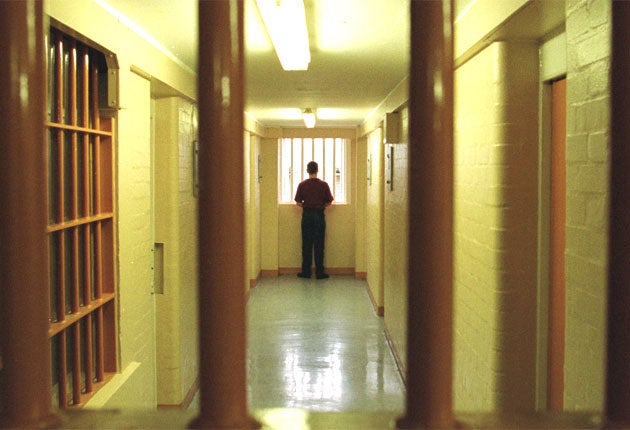Short-term jail sentences cost Britain £10bn every year
Lack of rehabilitation and work for inmates while inside means more reoffend

Your support helps us to tell the story
From reproductive rights to climate change to Big Tech, The Independent is on the ground when the story is developing. Whether it's investigating the financials of Elon Musk's pro-Trump PAC or producing our latest documentary, 'The A Word', which shines a light on the American women fighting for reproductive rights, we know how important it is to parse out the facts from the messaging.
At such a critical moment in US history, we need reporters on the ground. Your donation allows us to keep sending journalists to speak to both sides of the story.
The Independent is trusted by Americans across the entire political spectrum. And unlike many other quality news outlets, we choose not to lock Americans out of our reporting and analysis with paywalls. We believe quality journalism should be available to everyone, paid for by those who can afford it.
Your support makes all the difference.The mismanagement of short-term prisoners is costing Britain up to £10bn a year, the public expenses watchdog warns today.
Failures to properly deal with the rehabilitation needs of criminals serving less than 12 months in prison means that more of them reoffend after release, leaving the taxpayer to pick up billions of pounds in additional social costs, according to a report by the National Audit Office (NAO).
Nearly a half of all prisoners serving short sentences are not involved in work or courses and spend almost all day in their cells, the NAO found. Edward Leigh MP, chairman of the Committee of Public Accounts, said he believed that short sentences "served little purpose" apart from removing offenders from the community.
"Prisoners who are sentenced to less than 12 months have the dismal record of holding more previous convictions than other prisoners – on average, 16 each – and they are more likely to reoffend than other prisoners, with 60 per cent being convicted of another offence within a year of their release."
He added: "These prisoners' reoffending costs society up to £10bn a year. So the imperative to tackle this criminality is based on financial sense as well as the need to make our communities safer and happier places to live."
He described the Ministry of Justice and National Offender Management Service's (Noms) efforts to tackle the "merry-go-round" of incarceration and criminality as "ineffectual".
The NAO says that short-term prisoners have high levels of homelessness, joblessness and drug and alcohol problems. It said that Noms, the Government body responsible for prisoner management, was successful at keeping the vast majority of short-sentenced prisoners safe and well inside but is struggling to manage inmates who spend six weeks or less in prison.
The NAO argues that Noms could achieve greater value for money by improving prisons' work with these offenders. The Ministry of Justice and Noms are now developing a new strategy to improve the management of prisoners who are sentenced to less than 12 months, but with pilots still to be completed, these bodies have yet to set out in detail the activities and prisoners to be prioritised and the targeted outcomes they will adopt.
Mr Leigh said: "Only a tiny proportion of prison budgets is spent on activities to rehabilitate offenders serving short prison sentences. The uncomfortable truth is that they are not working, studying or doing anything constructive with their time. Indeed, half of them spend all day, every day, sitting in their cells."
Roma Hooper, director of the criminal justice project Make Justice Work, said: "Today's NAO report highlights the massive cost and inefficiency of short-term prison sentences. As the evidence mounts against short-term prison sentences, the next prospective government should not shy away from addressing the issue and looking at more productive ways of dealing with low-level offenders."
She added: "If these offenders were redirected to robust, community-based alternatives to custody, more money could be spent on rehabilitating them and providing vocational and training opportunities rather than wasting millions on keeping them behind bars."
Join our commenting forum
Join thought-provoking conversations, follow other Independent readers and see their replies
Comments